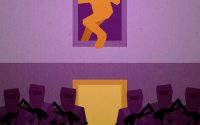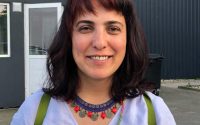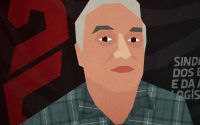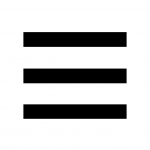Kurdistan // A year in the Internationalist Commune of Rojava~ 16 min
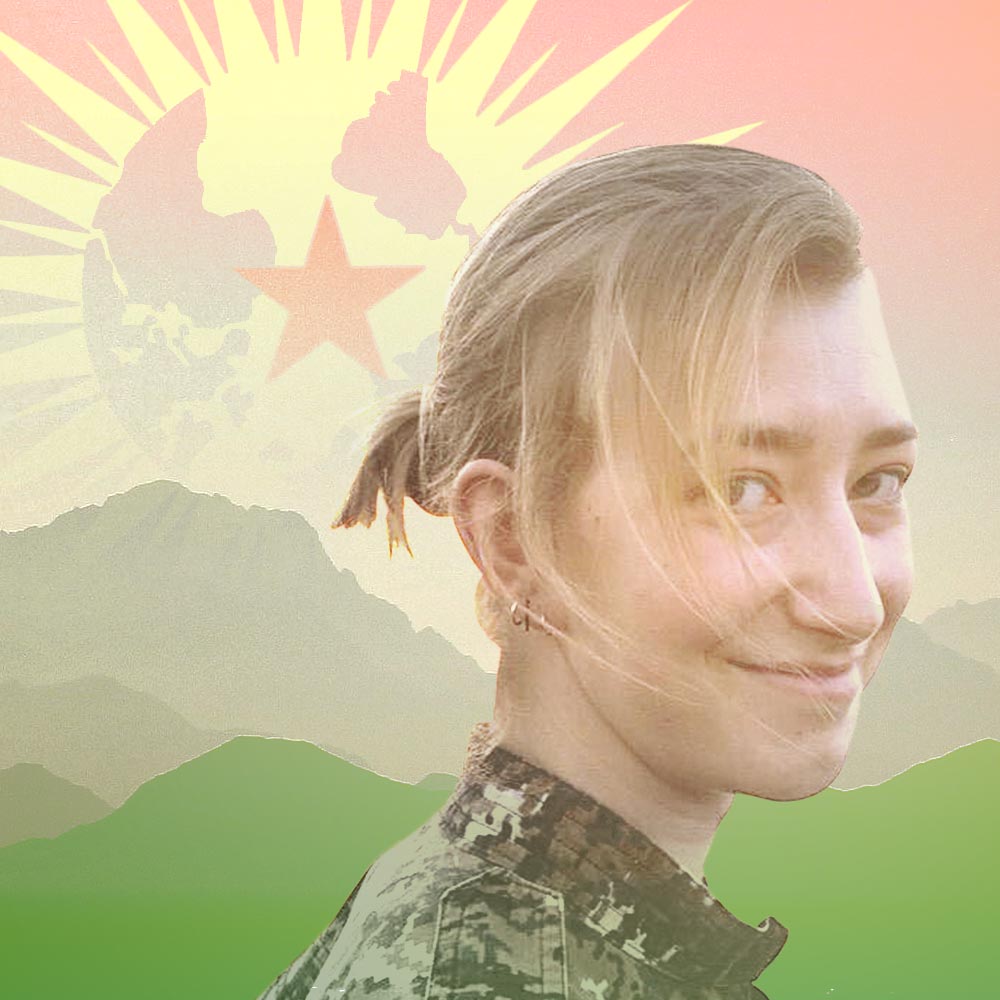
We spoke with Rok Brossa, Catalan internationalist and member of the Internationalist Commune of Rojava. We discussed internationalism in the XXI century, the experiences of Rok during the year he was in Rojava supporting the Democratic Federation of Northern Syria and what it was like living through the occupation of Afrin by the Erdogan regime.
What is the Internationalist Commune of Rojava and how was the project born?
The internationalist commune is the organizational linchpin of internationalists who are in Rojava working in civil roles and seeks to be the support space for all those who want to develop projects. It is a space for learning, study and seeking to understand what internationalism is and what is its role in the XXI century.
We have a slogan which is “Learn, Support, Organize”, as those are the main ideas. The focus of internationalism in Rojava is not to bring internationalists in order to explain how to do things, but to go there and learn and know what it means to organize a social revolution, a stateless society.
Therefore, there is also a quest to look for internationalist experiences so that the people in Rojava can get to know these different struggles. There we find an in-depth study of internationalism and we wanted to give concrete form to the practical experiences of the internationalists who traveled there.
You built the Internationalist Academy as part of the Internationalist Commune and created the project “Make Rojava Green Again”.
When we began the first debates in the Commune, there was an idea of trying to see how we could learn from our experiences, so that future internationals would not find the same problems that we encountered. After the first debates we realized we needed to have our own academy, where we can gather and store all these experiences of internationalism as well as welcome internationalists who arrive in Rojava.
There is a space for instruction in the academy where we develop the introductory [theoretical-practical] course for internationalists. There is also a space where we are developing the project Make Rojava Green Again. It is an ecologism project designed for Rojava, but that does not mean that we intend for it to remain only there. We seek to create relationships with radical ecologist movements around the world.
On the one hand, we have the tree cooperative which is a part of the practical project we want to develop to support the reforestation of Rojava. But it is also a whole ideological structure to think about what ecologism means and to offer new perspectives for ecological movements around the world to escape the dynamics of environmentalism, recycling, green capitalism, etc.
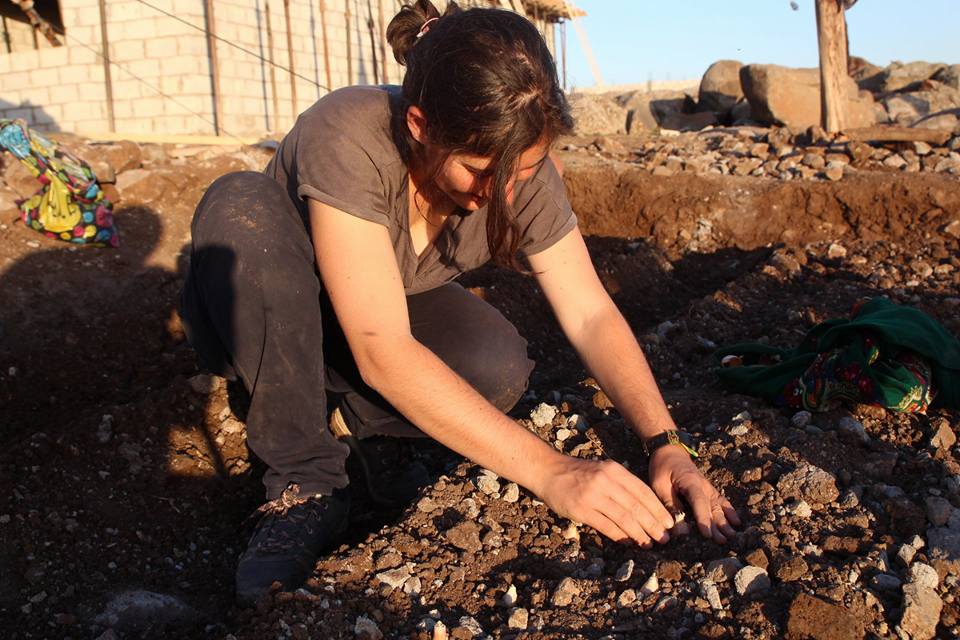
We intend to break with the liberal drift that occurs in some sectors of the ecological movement and recover the radical identity of ecologism. We understand it as a frontal opposition to the extractive system and techno-industrialism of capitalism.
For those who do not know the book that you have edited recently, what can you tell us?
The book was the culmination of the study and the debates we had about why we think it is important to work the theme of ecologism in Rojava. Murray Bookchin’s imaginary of Social Ecology has much influence there, but the connection with the territory and its defense from an indigenous point of view is also important.
The Kurdish people, which are the most numerous stateless people in the world, also have somewhat of an indigenous identity. The anti-colonial struggle is very present in their imaginary. We can see how the fight against occupation and colonialism can also be understood from an ecological vision of defending territory. In the book we try to deepen all the debates we had as well as the practical side of what we are doing: the tree planting project, water recycling and permaculture subjects we are currently researching, as well as the different works which we intend to develop with this project.
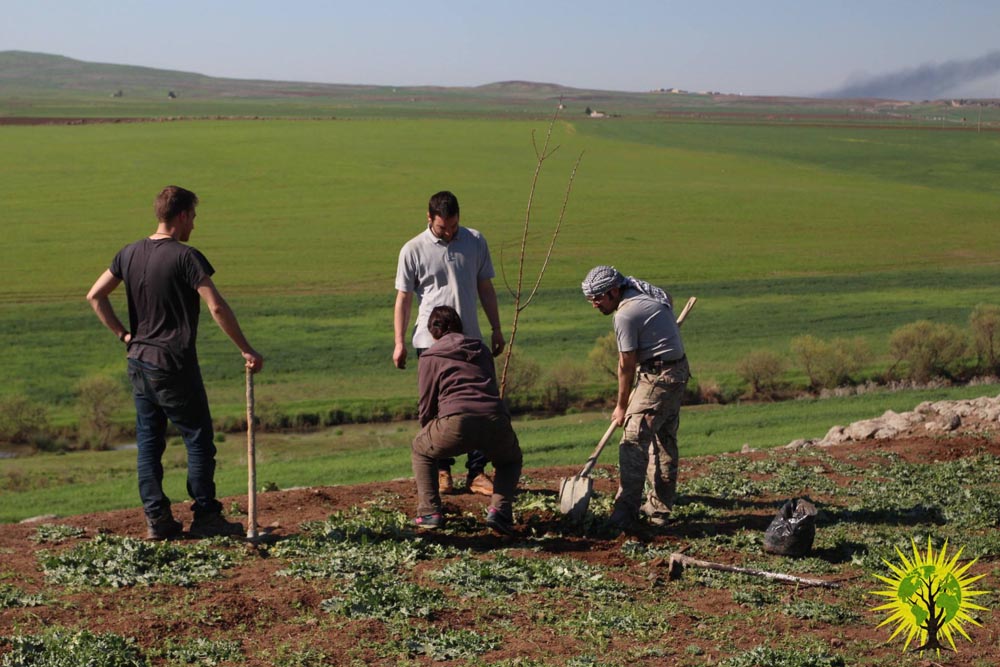
You spent a year in Rojava. What can you tell us about your experience there?
The experience there was very intense and enriching. I was in Rojava from the summer of 2017 until the summer of 2018, so I lived through intense events. The liberation of Raqqa, the occupation of Afrin… We visited many cities, from Shengal to Afrin.
It is very interesting to see what it means to develop a stateless society. What it means to organize social institutions which are self-managed by the people. You realize that, in the end, one of the most important steps to take is to develop the experience of community life.
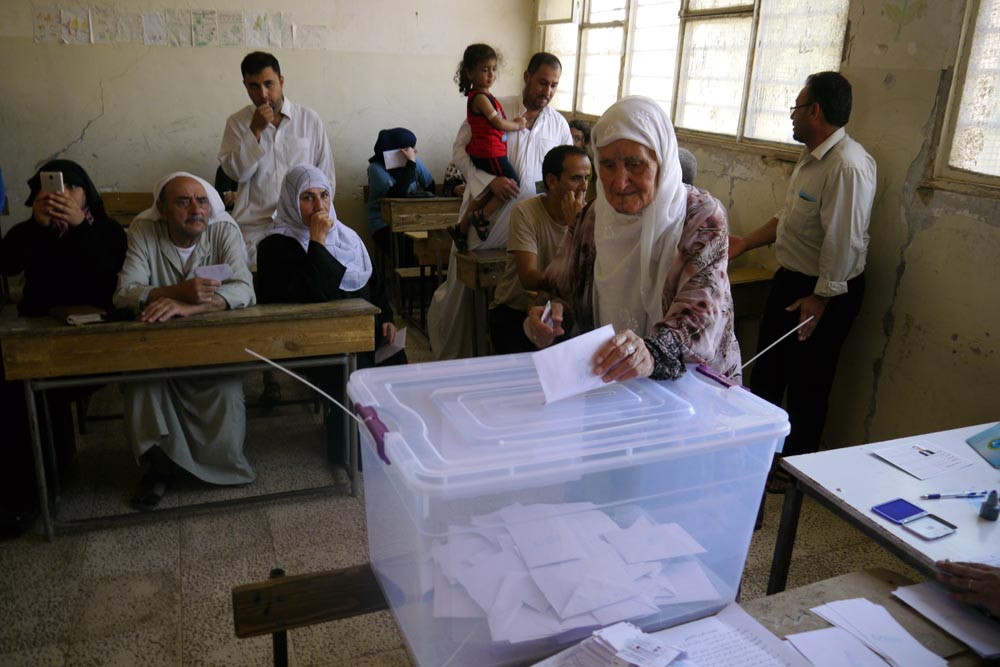
I strongly felt this when I returned to Europe, which is dominated by extreme individualism and the liberal mentality of not thinking beyond the individual, of the individual economy. You realize that the model of capitalism that we are living in Europe right now is very focused on this imaginary of individualism, while in Rojava it is precisely the opposite. They seek to strengthen community life.
The war also forced a lot of people to realize the need to “be a society”. If you can’t defend yourself and generate collective self-defense mechanisms, it becomes clear you will be at risk in the Middle East. We saw this especially in the war against Daesh. It was precisely this community life, this “being society” that allowed us to develop a movement and permitted us to win the war against Daesh.
What is it like for the Kurdish movement to welcome the internationalists? How were these dynamics developed, meaning, what is it like to live in Democratic Confederalism?
We must realize that this movement had an internationalist character from its first moment. When the Kurdistan Workers’ Party (PKK) was created in the late 1970s, we can see that there are other populations participating besides the Kurds. There are also Turkish, Armenian, etc. so that this internationalist identity was already somewhat present at the heart of the liberation movement of Kurdistan.
Nowadays, the links with movements around the world are also expanding because the movement realized that a revolution in Kurdistan has no future if free Kurdistan is surrounded by capitalist states. They understand that the revolution must be global, because the capitalist system which attacks us is also global.
If we are not capable of generating an internationalist imaginary that can connect with the revolutionary movements of the whole world, this movement will not triumph. That is why there is a lot of effort in learning, teaching, living and sharing collectively with internationalists because they realize that it is necessary for the movement not to be closed upon itself.
They seek influences from other movements, other territories and from there to learn and share links. We have to realize that this is a movement which has made a very profound analysis of history. They emphasize that the study of revolutionary processes which have occurred in the past is very important and that this knowledge must be socialized and shared.
In the end, being able to know and learn from other revolutionary movements leads to internationalism being a core value. Receiving internationalists is very important to the Kurdish people. The internationalists get to see how the Kurds have suffered many a genocide, major attacks which the international community ignored many times.
The Kurds now see how people from all over the world go to Rojava and learn the Kurdish language. It warms the soul and gives much motivation to continue to fight and build the resistance in Rojava. For internationalists to see the model of society they are building there gives us a lot of inspiration and many ideas when thinking about how to build movements in our territories.
You mentioned Afrin, who became a critical point in the Kurdish people’s struggle. How did you experience that moment?
Afrin was a very intense moment. After years of war against Daesh, the Syrian Democratic Forces (SDF) developed a self-defense system which was very adapted to the war against that enemy. Suddenly, Turkey began the invasion of Afrin in January 2018, with all its NATO technology – drones, missiles, fighter jets, tanks and other armored vehicles. It is a radically different thing to fight against Daesh and against NATO’s second-largest army.
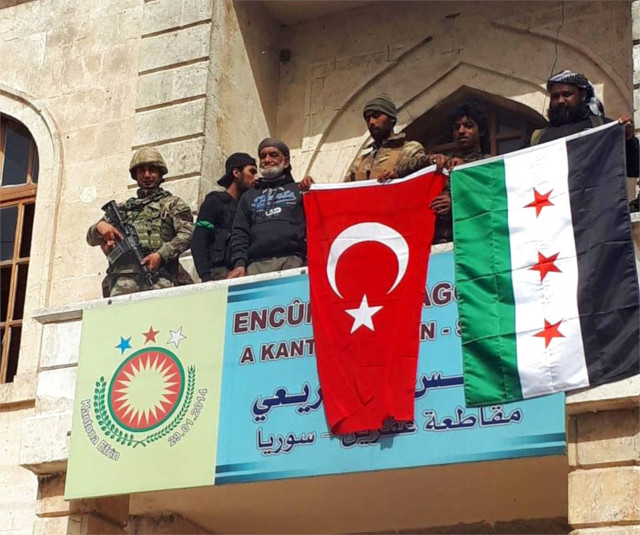
It was very difficult to witness the international community’s inability to react. You could see that there was hope [that the international community would stop the invasion of Afrin] after the movement had been fighting and defeating Daesh. It was a struggle which began not only to defend the people of northern Syria, but for all of humanity.
Since the liberation of Raqqa, it was hoped that the International Community would not allow a NATO country, especially Turkey, to invade the Afrin canton. It had not yet suffered war until the time Turkish State invaded.
It was hoped that the International Community would intervene, but we saw what the reality is and what the interests of the West are. It gives priority at all times to the protection of their NATO partner and never stopped to think about supporting the Kurdish people and valuing the war against Daesh that they fought from northern Syria.
In this sense it was very sad to see the West’s display. Yes, it is true that citizens and democratic forces throughout the world organized demonstrations, acts and there were even some municipalities which were against Turkey’s occupation. But all this was not enough to stop the war.
Such a situation makes us think what kind of internationalism we require today. It is true that this solidarity, this civic internationalism exercised through demonstrations and pressure on the institutions, raises the moral and motivation of the people who struggle, but it failed to stop the war.

Turkey occupied Afrin without anyone stopping it. So we have to think, what is the internationalism that we have to build? What revolutionary movements do we have to build so something like this does not happen again.
Seven years after Rojava declared autonomy, it is still surrounded by States that deny its project. You also mentioned Turkey, which wants the genocide of the Kurdish people. What do you foresee for the Democratic Federation of Northern Syria (DFNS) going forward?
It is certainly a very complex situation. Since December 2018, when Trump announces the US withdrawal from Syria, a process began in which Turkey started to prepare an invasion. It accumulated tanks and several jihadist groups at the border to participate in an occupation.
DFNS’s diplomatic strategies are a result of extensive learning and its strong diplomatic work managed to involve other forces to prevent Turkey from using air power, as they intended to do.
Ultimately, the judge in Syrian today is Russia, which has established itself as a hegemonic power in the area. Nobody can move without Russian authorization. Russia did not give Turkey the green light to enter with aviation, as it did in Afrin.
Now we have to wait and see how things proceed. We know that the Turkish State intends to enter at any price. There are many Islamist groups which are waiting for Turkey to proceed with an occupation. Rojava is on high alert right now, waiting for a possible invasion. In late March, there will be elections in Turkey and we know that Erdogan customarily attacks the Kurdish people before elections, in order to win votes.
Rojava is now in a state of emergency and is continuing the active negotiation process with the Bashar Al-Assad regime. The movement has always made every effort to maintain dialogue. In recent months we have seen clearer diplomatic approaches. These encompass the creation of the Council for a Democratic Syria. It includes a confederation of all the civil councils which exist in the north and east of Syria. Their objective is to generate a process of dialogue with the structures of the Syrian state in order to negotiate autonomy.
Assad has made several statements in which he rejects any kind of autonomy for the DFNS, although Russia has also made statements saying it does not stand against the idea of creating a federal state.
It is a very complex situation in which all the negotiation processes are still ongoing. We can see that Assad does not want to give any kind of autonomy to the population of north and east Syria, although an occupation by Turkey isn’t in the interests of any of the parties. We just have to look at Cyprus and see the Neo-Ottoman posture of Turkey, which seeks to increase its borders and recover the ancient splendor of the empire.
From my point of view, it seems to me that these negotiations are also a way of gaining time. What is important is not so much the agreement at which we arrive with the Syrian state, but rather gaining time to consolidate the commune structures. We see with each passing day that the civil structure and the women’s movement are becoming more and more organized.
In the end, if we come to an agreement with the Syrian state, it will not be a big deal either because the reality [of our options] is very limited. At best, maybe we can see something like the autonomous communities of the Spanish state. The important thing is for the social movement behind it to become much more organized and prepared. The more organized society becomes while reducing its dependency on the State, the less power the State will have over the Federation.
Democratic confederalism relies heavily on this notion. Of organizing society so that it does not depend on the state. It is not a desire to attack the State, but rather, to generate mechanisms of autonomy and self-defense. Just in case we are attacked by the State and have to defend ourselves. So the longer the movement can accumulate experience, knowledge and strength, the more it can develop the Democratic Confederalism model in the margins of the negotiations with the Syrian state.
Whenever we speak of Rojava, it becomes necessary as well to speak of Jineoloji and the struggle of the Kurdish women. What did you perceive in your contact with the women’s movement?
It is important to talk about Jineoloji and the struggle of the women’s movement because it is the creation of a new imaginary. We have seen how many of the things which happen in Rojava, such as cooperativism and communes, have already happened in other revolutionary processes. Undoubtedly, however, the huge women’s movement and women’s leadership in this process of social transformation is something new. It has never existed on this scale and scope. So I think the analysis they do is very correct.
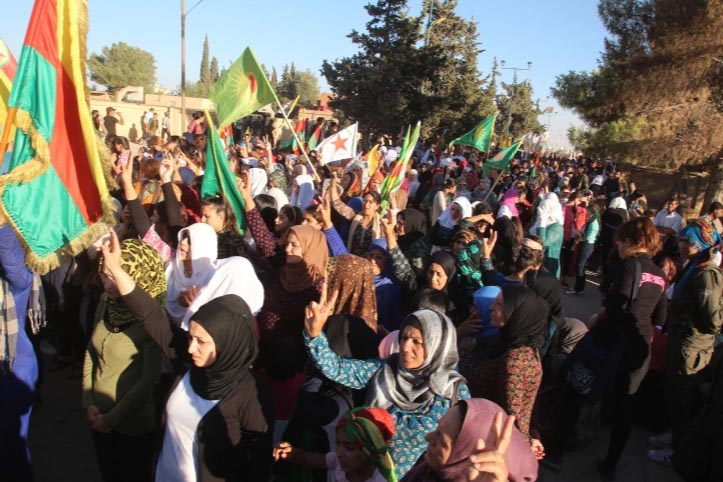
The women’s movement is what is helping to guarantee the democratic advances that are taking place there. I think it is very important to see the relevance of the women’s movement in generating revolutionary processes which help develop democratic structures.
This is especially true in the Middle East, where armed conflict has been a constant. But it is also true in the West. We like to think of Western feminism as highly developed.
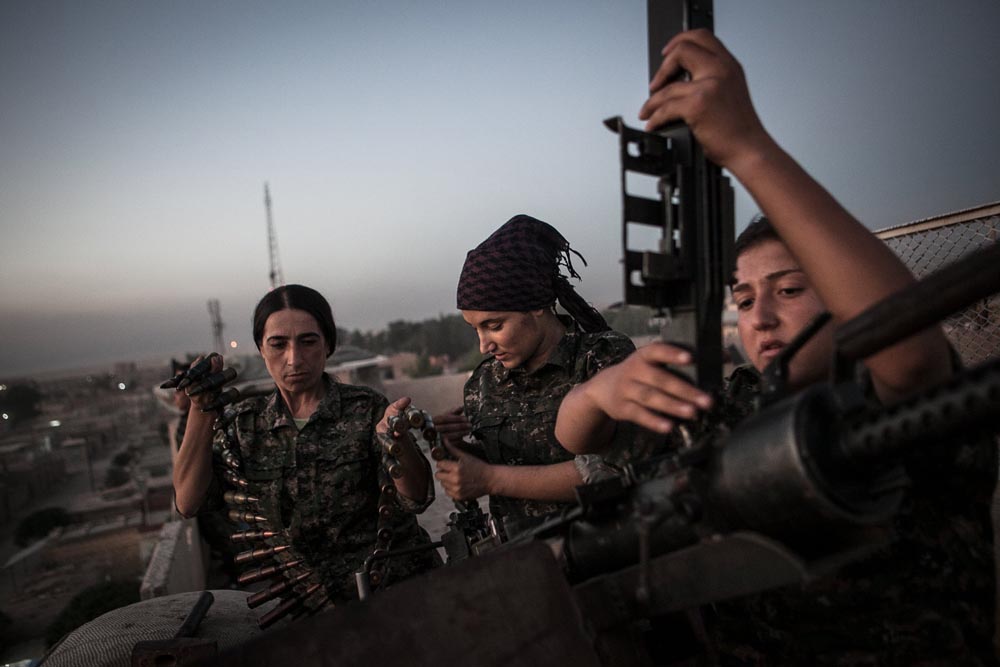
When you go to territories like Rojava, you realize that the liberation of women you get in the West does not really bring liberation to society. It is very clear over there that society can not be free, if women are not free as well. Therefore, the liberation of women is an absolute priority for this revolutionary process.
How can we in Europe contribute and find more information?
For those interested in civil projects, we have the Internationalist Commune web page. There you can read articles in English and other languages about the actuality of Rojava, watch several videos and some other things which we are launching.
Since the Make Rojava Green Again project was launched, we have a page where you can find more information about the ecologism project.
Something very beautiful about this movement is that we have found a number of committees to support Kurdistan which are consolidating themselves. I invite you to look for your local collective and, if it does not already exist, to create one and to establish networks with committees around the world.
Creating this international network and getting to know other people, know the Kurdish community in diaspora, is a very beautiful way of supporting and creating community.

